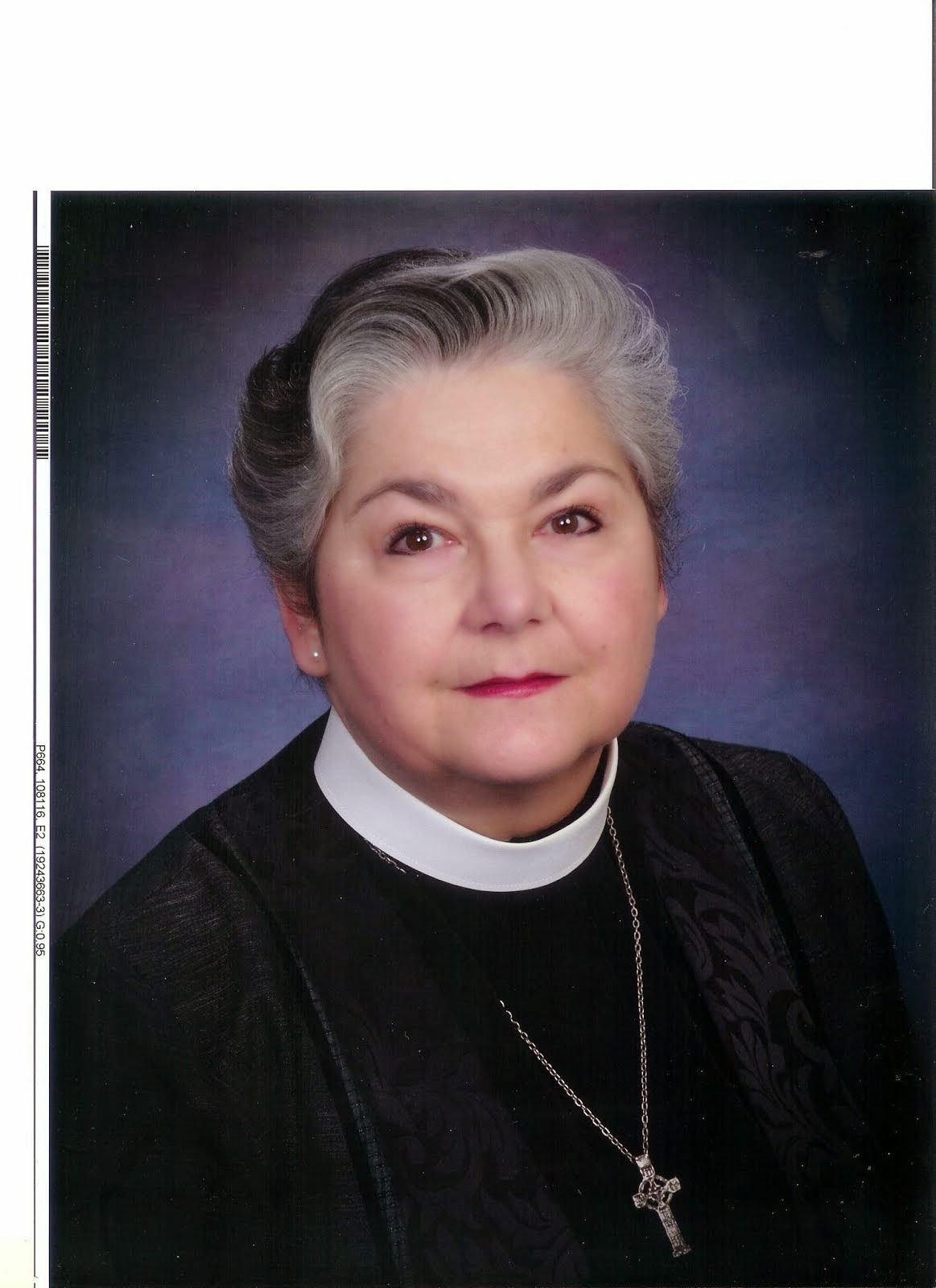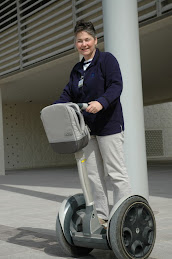Does anyone here watch “Antiques Roadshow?” I watch it every now and again, and am amazed at the things that people bring in for valuation. Every now and again, someone brings in some ugly lamp they bought at a yard sale for ten dollars, and they discover it’s a rare Tiffany worth a thousand. Another person brings in the chest of drawers that was by their grandmother’s bed for sixty years, and Leigh Keno says it’s an exquisite example of an Eighteenth Century Newport shell-carved chest that might go for a hundred thousand dollars at auction. Then, too, there are the items that may have some sentimental value, but in dollar terms, they are really just worth what the person paid for them, or less!
How do we value something we have acquired?
I really feel for the servant in Jesus’ parable today who buried the money in the ground. He got a bad rap, cast out into the outer darkness. But his heart, if not his brain, was in the right place. He was worried about what would happen if he lost the talent his master gave him, so he put it in a safe place.
Why was he worried? This thing, this talent, was no little copper penny. It was a block of gold weighing 75 pounds! With gold at $1767 an ounce on Friday morning, the talent the master gave the servants would be worth over $2 million dollars today. The servant knew it was valuable. Of course it made him nervous!
Our grandparents might have done the same thing, putting money under the mattress. They did it because they believed no bad things would happen if the money was safely tucked away. If they had lived through times of deprivation, the fear of loss was great. It would have been the same for this servant, given this enormously valuable thing…a servant who may have had only a few modest belongings of his own, who had no experience with what to do with something this big, this valuable. He probably said to himself, “I’m not a clever person. I don’t know what to do with this. But the one thing I DO know is that if I lose it, I’ll get in big trouble, so I’d better keep it safe.”
And thus it got buried in the ground, in a spot only the servant knew. It would be safe there.
By the same token, no good things would happen to that money stashed away, either. While it was tucked away in that safe dark spot, it was a useless, sterile thing. Nothing could be done to it, but neither could it do anything. It was, for all intents and purposes, useless.
That’s the thing about valuable gifts. If they don’t get used, they have no value. That golden talent might be worth a king’s fortune in economic terms, but it might as well be 75 pounds of manure…as a matter of fact, if we’re putting things in the ground, the manure would be more valuable than the gold!
We can understand this servant’s reluctance to put the talent at risk. But the master trusted him enough to give it to him. The servant should have recognized and remembered that trust. The other servants did, and when they were given their talents, they put them to good use. Perhaps they invested them by purchasing some land that others would farm. Perhaps they bought a warehouse full of grain, expecting that the value of the grain would increase in times of drought, then selling it at a profit. Who knows? What we do know is that they did something to increase the value of those talents. They understood that the talents were valueless unless they were put to use.
Why did they do something different than the fellow who put the talent into the ground? Because they saw that truth – the value of a thing is in its being put to use. Even a painting by Michelangelo is valueless if it is put in a vault where no eyes can behold it.
How do we set a price, a value, on valuable things? If it is a piece of art, it is what a collector or a museum will pay for it. If it is stock in a company, it is what investors believe will be the potential value of the business, how much profit it will make, what kinds of new products are waiting in the wings. If it is the last letter your grandma sent you before she died, it is in the sentiment, the emotions in your heart as you touch it and read it and smell her Chanel No. 5 on it.
But there are other valuable things that are more ephemeral. It is difficult to peg a market value to these things. And these things, like that great big block of gold, are also called talents.
We might call them talents, or we might call them gifts. Each of us has them.
Now these things are usually not learned skills. Talents or gifts are something different – they are qualities in us that are gifts from God. Some folks call them “spiritual gifts,” after the list of gifts that St Paul named as gifts of the spirit: gifts like prophecy, wisdom, faith, healing, interpretation, serving, giving, teaching, being merciful. An impressive list, and I suspect that most of us think we don’t have any of those gifts.
And yet we do. So I’d like to do a little experiment here. I’m going to talk about some gifts, not using the language of Paul, but the language of Henrico in 2011.
Who among you is a good listener? Stand up.
Who among you is someone people ask advice from? Stand up.
Who among you brings a casserole to someone who is sick, or who is grieving? Stand up.
Who among you has ideas for new ways we in this parish can help those in need? Who among you already works at helping those in need? Stand up.
Who among you tries to read and figure out the Bible? Stand up.
Who among you made a dish of deviled eggs or a plate of brownies for the receptions we have had after memorial services in the past year? Stand up.
Who among you prays, quietly and privately, for those whom you know are going through hard times? Stand up.
Who among you voted last week, contributing to our democracy? Stand up.
Who among you called a friend or a family member last month? Stand up.
[By now, we all should be standing up.]
You all are in possession of at least one spiritual gift. Those who listen, you may be a healer or a source of wisdom. Those who pray, you demonstrate faith. Those who bring the deviled eggs or the casseroles, you may not know it, but you may be healers! What better way to heal those who are hurting than to give them something tasty to feed their bodies? Those who read the Bible, you may be interpreters. Those of you who pray, isn’t it true that you are always looking to reinforce your own faith and spread it to others?
We all have these gifts, these talents. Some of us have ten of them. Some of us have five of them. Some of us have been given a single one, and that’s perfectly wonderful too. Because what matters is not how many gifts you have been given, but what you do with them. Do you bury them in the ground, not using them, because you fear that if you try, you will do something wrong, or that someone will think you are silly or ineffective or some kind of religious nut? Do you worry that there is only one right way to use your gift, and you don’t know what it is, so you’re safer doing nothing with the gift?
The master in the parable was angry at the servant because he did nothing with what was given him. I suspect that if the servant invested that talent, maybe even in a solar manufacturing plant in California, the master wouldn’t have been half as angry, because it would have indicated that at least the servant tried to maximize the value of what he was given. Even if the servant had put it into a bank Certificate of Deposit at a 1% interest rate, there would have been a little interest accrued by the time the master returned. The problem with this servant was that he let his fear get in the way of putting the talent to work.
Your master, your God, has given you gifts. Some of them have been big flashy talents worth $2 million dollars. Some of them have been very subtle gifts that are hard to see, but exquisitely valuable in the right place and at the right time, like the hug of a friend or the hymn you needed to hear just in that moment. But like the talent in the parable, they are gifts that are intended to be used, not stashed away.
And that is the great blessing of this place. Sometimes I think we have a bit of an inferiority complex, because we’re not as big as other parishes, or we don’t have all of the programs that some parishes have, or we only have a single priest…but none of that matters. We have all the gifts necessary for this place. So today, when we have our congregational meeting and reflect on what we have accomplished this past year and what we hope for the future, remember that: we have all the gifts necessary for the work to which God calls us. There is no Leigh Keno and Antiques Roadshow to value these things, but we don’t need an external expert to say what they are worth. We know their value in our hearts and souls. Celebrate that, and then get to work getting the most and best use out of all those beautiful gifts!
Amen.







No comments:
Post a Comment